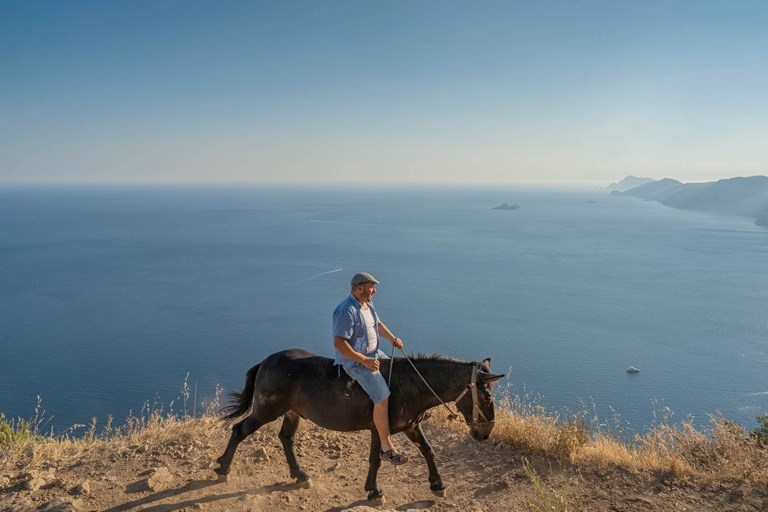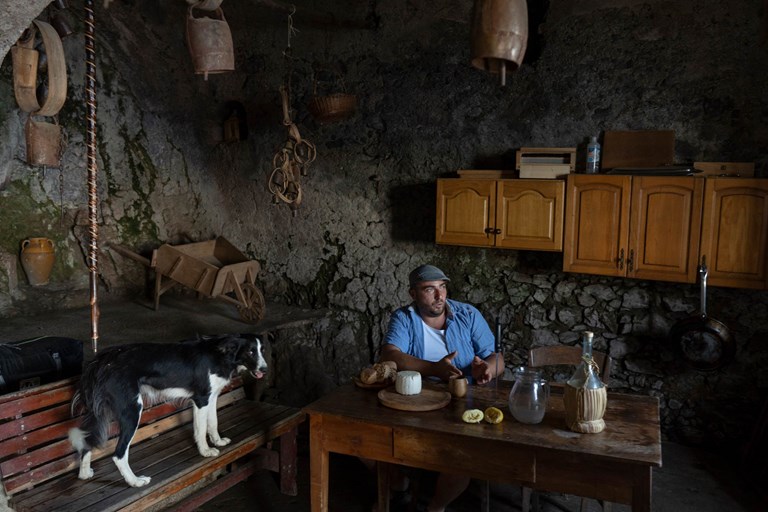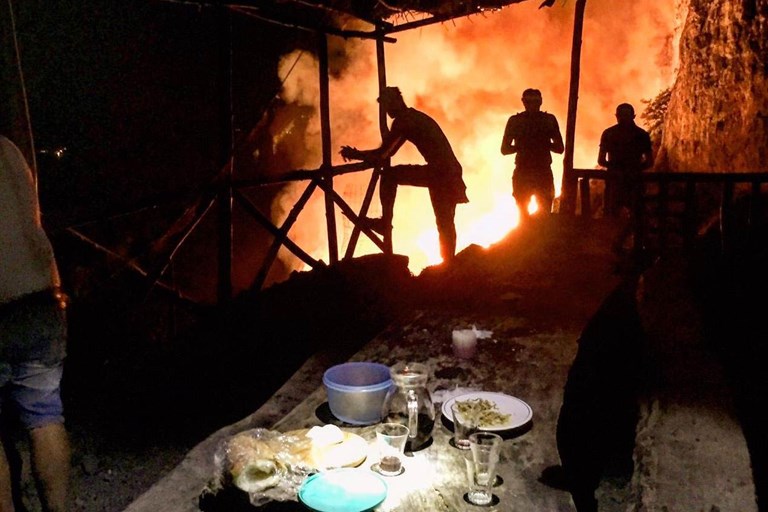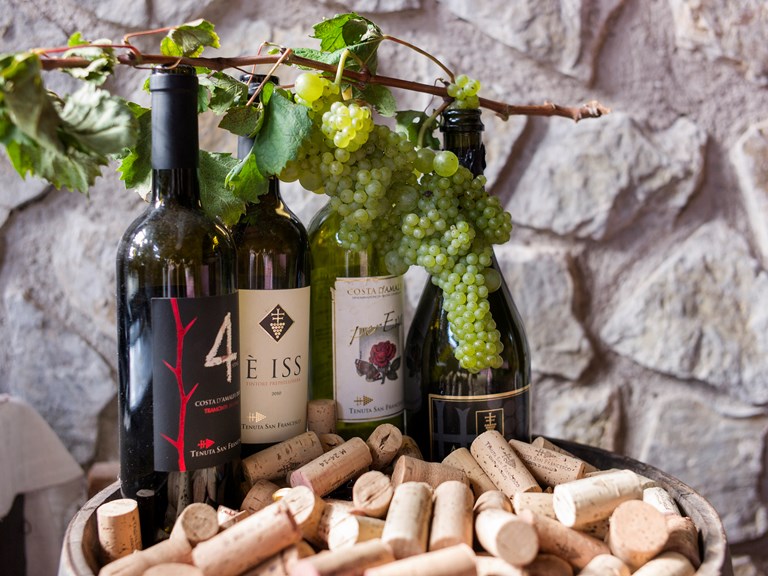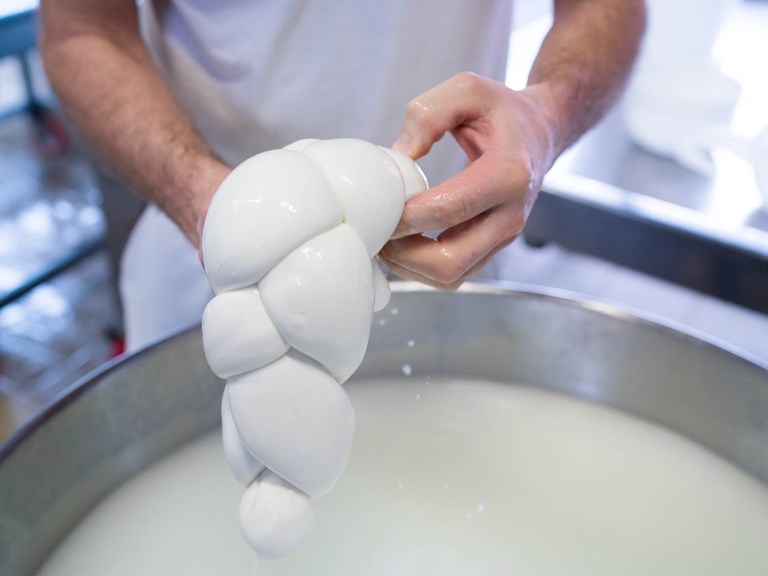ANTONIO MILO: GOATHERD 2.0
19.09.2020 BEST OF THE COAST
A plate of wholegrain rusks, and a basin of spring water to dip them in for a few seconds so they soften but retain a good, healthy crunch. Another wooden plate bearing slices of goat’s cheese crafted by Antonio, some of it made only two days previously. A jug of honest homemade red wine. A small jar of local olive oil. And sprigs of rosemary gathered there and then from plants growing wild among the surrounding maquis.
To enjoy this meal in the company of Antonio, a cheerful, passionate 32-year-old, in a place of stunning archaic beauty, with views that embrace a long swathe of the Amalfi Coast, from the convent of San Domenico to an arpeggio of headlands and inlets stretching towards Capri, is to understand that perfection can abide in the simplest things.
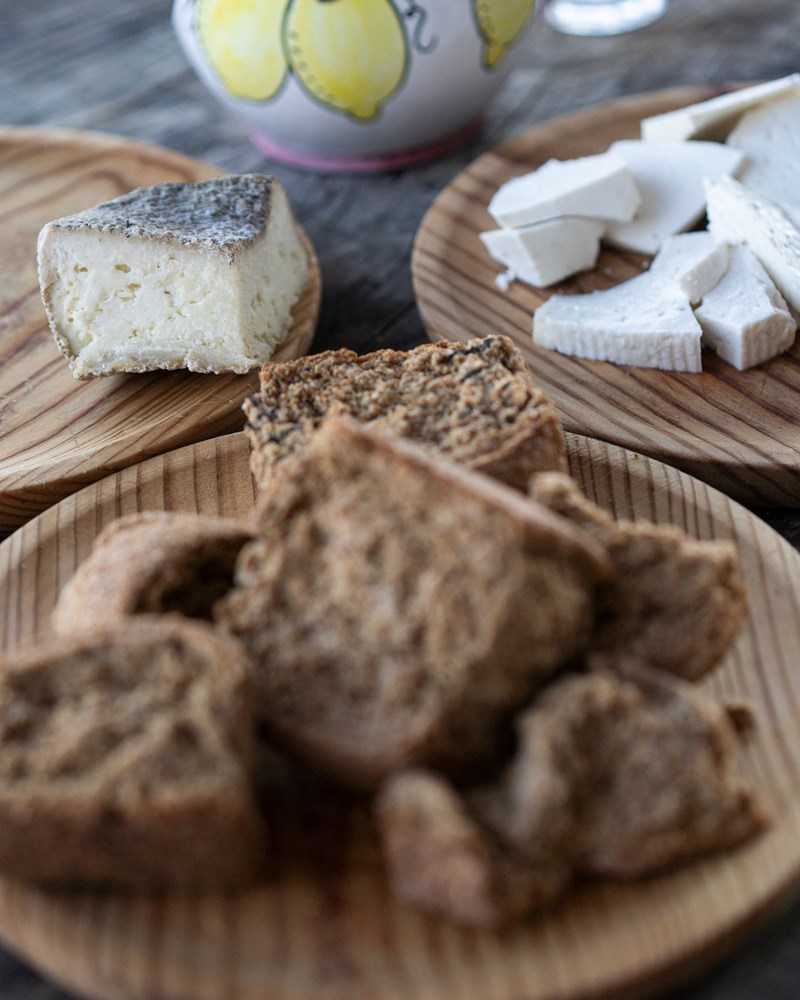
Antonio’s father was a goatherd. So was his grandfather and great-grandfather. It seemed frankly mad for him to continue to ply what he ruefully refers to as “an endangered trade” when there were so many easier ways to make a living. But he loved the outdoors life, the contact with nature, and he was never tempted by the idea of accumulating money for money’s sake. “Today”, this mountain philosopher tells me, “people live to work. Once, they worked to live”. Growing up in the 1990s, he had witnessed many of the last cultivated terraces that sculpted the mountains near his home town of Agerola being abandoned as young people chose not to continue the hardy farming life of their ancestors. “It’s beautiful now”, he admits, “but it was even more beautiful back then”.
Today the Sentiero degli Dei, or Path of the Gods, a high-level rocky path suspended above the resorts of Praiano and Positano, is the Amalfi Coast’s most celebrated trekking route. But it wasn’t created with leisure use in mind. It was made centuries ago as a muletrack, to link the dairy farms of the Monti Lattari (whose name derives from latte, the Italian word for milk) with the towns of the coast. In the other direction came fresh fish and citrus fruits.
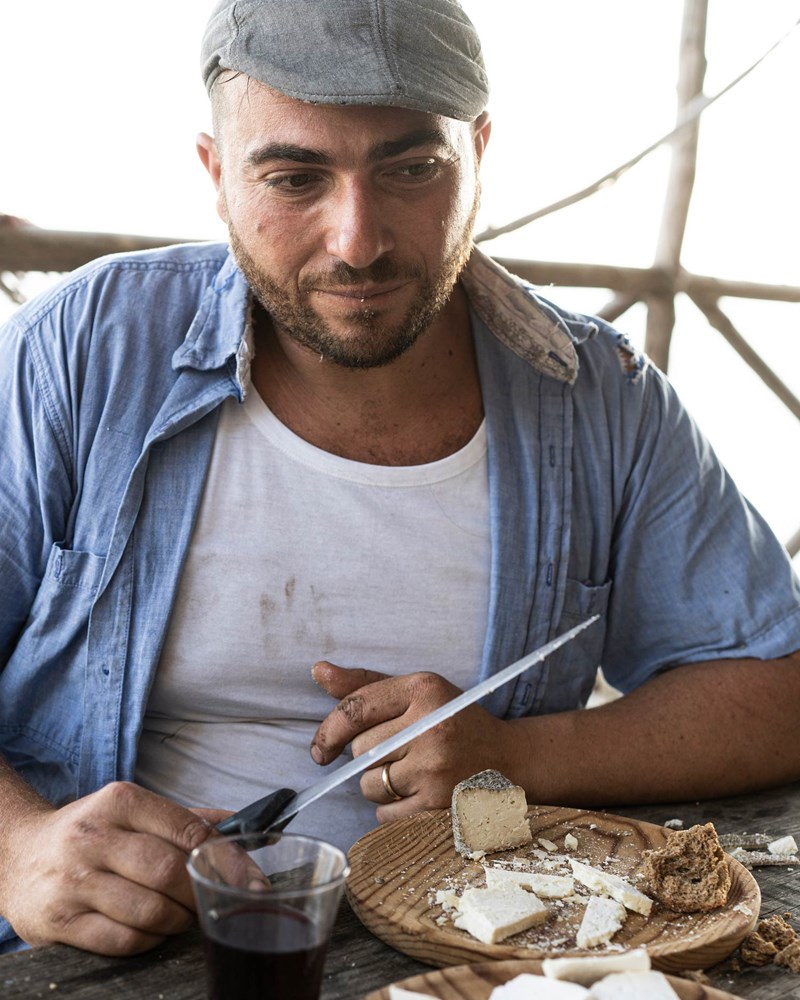
Three years ago, with help from friends and family, Antonio bought an old farmhouse above the Path of the Gods. Entering it is like going back in time a couple of centuries. With its bare stone walls, open fireplace, weathered wooden tables and benches, shelves of woven baskets and copper pots, and wooden pallet suspended from the ceiling where ricotta is placed to set and solidify, it has all life’s essentials – and nothing more.
Antonio gets here early in the morning to milk his goats (he has around a hundred, plus two pigs, a donkey, a mule called Limone and a herding dog called Venere). Sometimes he’s still here late in the evening, “but I don’t count the hours” he says, “it’s not like I’m clocking in and out”.
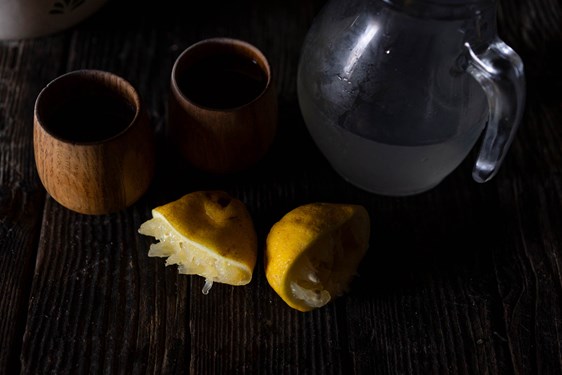
View
He makes cacioricotta cheese, in both primo sale and seasoned versions. Primo sale is the youngest, freshest type of goat’s or sheep’s cheese, which can be eaten from the day after milking. If left in a well-aired place, the cheese gradually becomes denser and more tangy. Alongside the primo sale, Antonio will often serve guests a one-week-old cacioricotta and 40-day variety. But even among similarly seasoned cheeses, there’s a great range of taste and texture according to season and other factors. “Every piece of cheese tells a story”, Antonio tells me. “It changes according to the time of milking, where the goats have been grazing, whether I’m with the goats when they’re grazing”. In winter, the cheese tends to be richer and denser, and far less milk is needed – maybe five litres per kilo of cheese compared to 12 or 13 in summer.
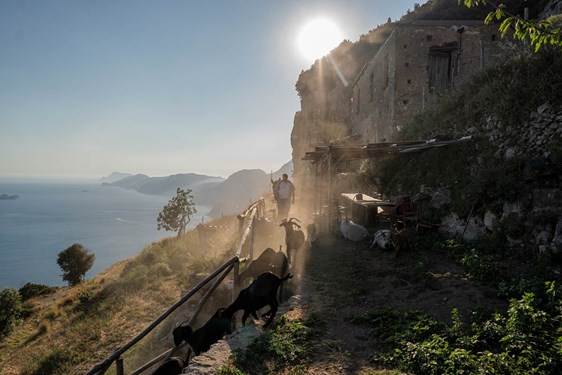
View
Antonio may have followed his heart in choosing to keep goats and make cheese in this rugged natural paradise, but he realised he would have to do it in a different way from his ancestors. “The profession has to evolve”, he tells me. Twenty years ago, his father saw tourists as a distraction from his work and didn’t like them approaching the grazing animals. Today, Antonio welcomes visitors.
Sometimes he’s brought guests by local walking guides; media coverage has also raised his profile in recent years, but he also finds that “whoever loves nature, people who have a spirit of adventure and discovery – they make their way here naturally”. He offers the same simple hospitality and country repast that I enjoyed, charging no fixed price, but whatever people want to give.
But at least he and his precious goats all survived – and the grazing layer of vegetation should soon grow back, autumn rains permitting. At the end of our call, Antonio signed off with an upbeat “As soon as you can, come and visit!”. I promised I would. All those who treasure the traditional culture of the Amalfi Coast should do the same.
Antonio Milo can be contacted via phone or WhatsApp on +39 339 166 9061
Photos © Roberto Salomone
Le Sirenuse Newsletter
Stay up to date
Sign up to our newsletter for regular updates on Amalfi Coast stories, events, recipes and glorious sunsets
